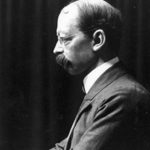This Biography is about one of the best Chemist George A. Olah including his Height, weight, Age & Other Detail…
| Biography Of George A. Olah | |
| Real Name | George A. Olah |
| Profession | Chemists |
| Famous as | Chemist |
| Nationality | American |
| Personal life of George A. Olah | |
| Born on | 22 May 1927 |
| Birthday | 22nd May |
| Age | 89 Years |
| Sun Sign | Gemini |
| Born in | Budapest, Hungary |
| Spouse/Partner | Judith Lengyel (m. 1949) |
| Awards | 1994 – Nobel Prize in Chemistry 2005 – Priestley Medal 1972 – Guggenheim Fellowship for Natural Sciences; US & Canada |
| Personal Fact of George A. Olah | |
|
George A. Olah is a Hungarian American chemist who won the 1994 Nobel Prize for Chemistry. Best known for the research which led to the isolation of the positively charged, electron-deficient fragments of hydrocarbons known as carbocations (or carbonium ions), he is also much respected for his work in the methanol economy. In addition to the Nobel Prize, he is also the recipient of the Priestley Medal and F.A. Cotton Medal for Excellence in Chemical Research of the American Chemical Society. Born in Budapest, Hungary, in the late 1920s, he grew up witnessing the horrors of the World War I which ravaged his nation. The 1956 Hungarian Revolution broke out when he was a young man and his family temporarily moved to England before shifting to Canada. Upon accepting a position as a research scientist at the Dow Chemical Company in Canada, he began his pioneering work on carbocations. After several years of working in the chemical industry where he also helped to improve some industrial processes, he moved to academics with a position at Case Western Reserve University. He eventually joined the faculty of the University of Southern California at Los Angeles, where he later became director of the Loker Hydrocarbon Research Institute. Even though he had begun his breakthrough research decades earlier, it was only during the 1990s that he achieved much international acclaim for his work. |
|




